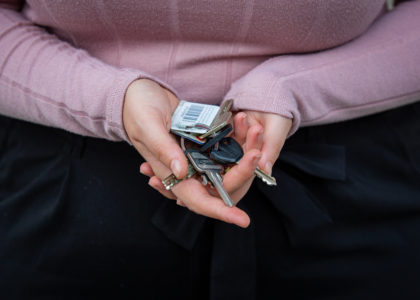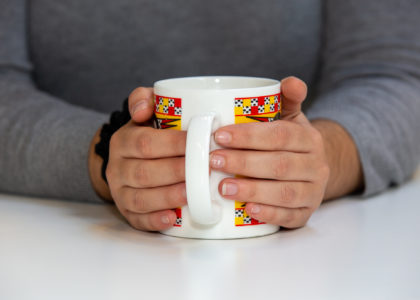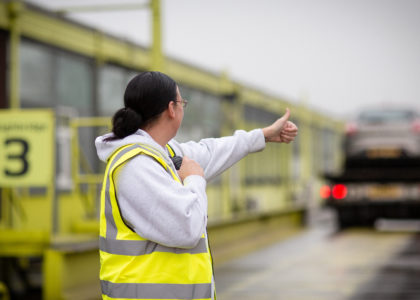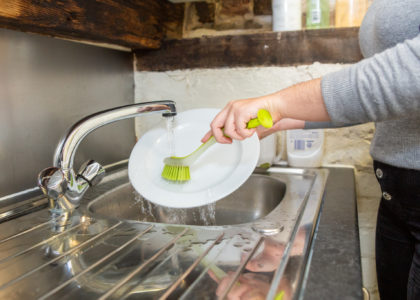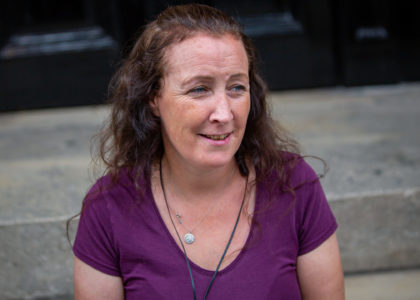This International Women’s Day, we are thinking about women’s experiences of homelessness. It is a complex and varied issue, as no two women are the same.
There are many factors that can affect women’s experiences of homelessness.
In this blog, we are focusing especially on the link between domestic abuse, also referred to as domestic violence, and women’s experience of homelessness. Below is a snapshot of some of the key data and information on the topic. You can find more information and resources on our Frontline Network partner’s website, Leeds Women’s Aid.
There is a strong link between domestic abuse and homelessness
Domestic abuse refers not only to physical abuse, but psychological, physical, sexual, financial, and emotional abuse, as well. Here is some evidence that points to the link between domestic abuse and homelessness:
- Basis Yorkshire, our local Network partner in Leeds, reported in February 2021 that, for women in their city, domestic abuse is one of the most frequent triggers for homelessness1.
- In Scotland, domestic abuse is the main cause of women’s homelessness – according to the Scottish Government Homelessness Statistics Equalities breakdown 2020-212.
- Our own UK-wide data shows the link between domestic abuse and women’s homelessness. Over the last 18 months, 33.6% of women who applied to our Vicar’s Relief Fund were fleeing domestic abuse. This is a considerably higher proportion than those in the general population who experience domestic abuse since, according to the ONS, around 7% of women in England and Wales experienced domestic abuse in 2021-223.
The impact of this experience and the trauma it causes cannot be overstated. The combination of these factors can result in people developing addictions, mental health issues and marginalisation during homelessness, making it even harder to find stability and a safe place to call home.
To find out more, we spoke to our Frontline Network partners who support women who have experienced domestic abuse. Here are their responses to some frequently asked questions about this topic.
Why don’t women leave their abusers?
Organisations who work directly with women fleeing domestic abuse often hear this question. There are many reasons that women become trapped in abusive relationships. Leeds Women’s Aid suggests the following4:
- they may hope that the abuse was a ‘one off’ or that the abuse will stop
- they may stay because of fear, for example the abuser may make threats against them or the children, to hurt him/herself, or against other family members or pets
- they may have been isolated by the abuser so they have no network of family/friends to turn to for help, and/or may not know where else to access support
- there could be cultural issues and pressure to stay, or language barriers, if the victim-survivor’s first language isn’t English
- their self-confidence and self-esteem may have been so eroded, or they may be financially dependent on abuser, so they may believe they are unable to manage on their own.
Avoiding homelessness can put women at risk of domestic violence. Women often cite safety concerns as their reason for avoiding sleeping on the streets. However, alternative arrangements often mean alternative risks. Some will stay in unsafe homes with violent partners. One participant in a study by our Frontline Network partner Basis5 said: “I’d rather take a beating from a man than go back to homelessness […] then you end up staying with someone and it’s not safe, and you get beaten anyway”.
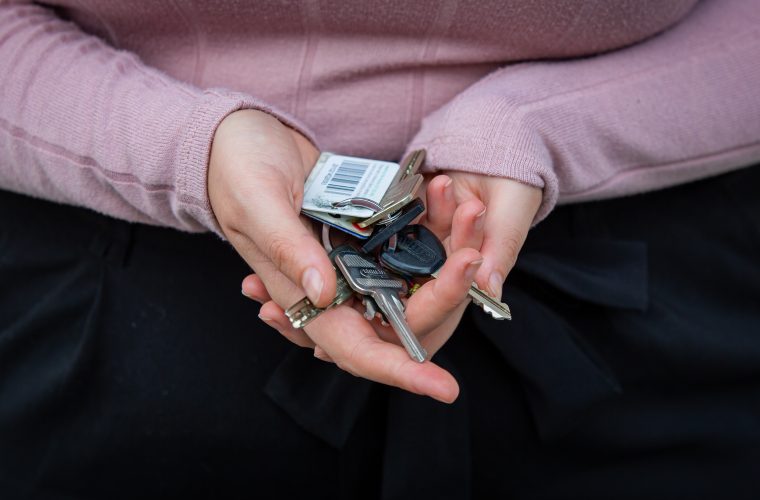
Isn’t there priority statutory homelessness support for people fleeing domestic violence?
People fleeing domestic violence are entitled to priority homelessness support from their local council. Unfortunately, some women face barriers to accessing this housing support, for example if they have restricted eligibility due to their immigration status.
And even for those who can access support, our partners report that this provision is hugely overstretched.6 This can lead to long waiting lists and prevents women from accessing support when they need it, for as long as they need it. There are barriers that often exclude women who require access to more intensive support, such as a history of sex work, previous arrests, or substance use. And in our latest Frontline Worker Survey, we heard that 27% of staff found accessing domestic abuse support for people they worked with ‘very difficult’ or ‘difficult’.
What are we doing to help?
We have set up the Leeds Women’s Homelessness and Housing Frontline Network. The network is facilitated by Basis Yorkshire in partnership with Together Women and Leeds Women’s Aid. The aim of this network is to support frontline staff working with women facing homelessness, to ensure that the right support is available, and that challenges and solutions can be identified to bring about positive change.
We also help people experiencing homelessness directly, providing small, individual grants to remove the financial hurdles to accessing a safe home, away from abuse. Between July 2021 and December 2022, we had 1,214 applications to support women who were fleeing domestic abuse. One of these applications was from Lara, who was forced to flee an abusive marriage whilst pregnant. We gave her a grant to cover her deposit and first month’s rent, to secure a property. You can read Lara’s story here.
As part of International Women’s Day and beyond, we encourage people to learn about women’s different experiences of homelessness. Domestic abuse is just one aspect of this, and you can learn more from our Frontline Network partners. And if you or someone you know are at risk or experiencing domestic abuse, please contact: https://www.nationaldahelpline.org.uk/

